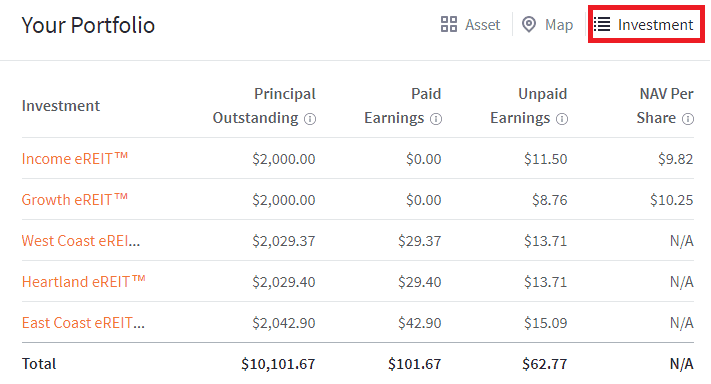
Investing can be one of the best ways to build wealth over time. It is essential for novice investors to learn how to select the right investment. There are many investment options, and each one has its own potential for growth. There are many risks associated with investing. Beginners should ensure they choose the right type of investment for them.
ETFs can be a great way for beginners to invest. These funds are designed for tracking a range of assets including stocks and bonds. This makes it easy to invest. ETFs are a safe investment because they have lower fees that other types.
Another investment option that is suitable for beginners is high-yield savings accounts. These accounts often offer higher interest rates that savings accounts and they are simple to open. They are also great for emergency fund holders. These accounts may offer 18 times higher interest rates than traditional savings accounts. Traditional savings accounts have an average yield of 0.21% annually, while high-yield accounts offer up to four percent annual percentage yield.

You will need to open an account with a reputable brokerage company if you are just starting out as an investor. Online brokerages don't require you to have a minimum balance. You can open your first account within five minutes. To open an online account, you only need to know your name as well as your social security number. Once you have opened an account, you can deposit funds from your bank to it.
Some beginners are intimidated by the idea of investing. It can seem complicated. It is not difficult if one follows the right steps. The key is to focus on the long-term, and not to become tangled up in the complexities of the stock market.
Real estate is another great investment option for beginners. Real estate is a well-understood industry, and it can offer big returns for beginners. Investing in real property can increase your capital and allow you to finance your properties through loans. Property can sell in many markets for hundreds of millions of dollars. Real estate success isn't for everyone.
A workplace retirement plan is another option that can be a good investment for beginners. These plans offer unique contributions limits and tax advantages. These plans provide the possibility to build wealth over the long-term and can generate income. These plans can also help with your financial goals.

Micro-investing can also be an option for beginners. Micro-investing is the purchase of fractional shares in a stock or ETF. This is a great method to get started investing with a little money but isn't as risky as buying a whole stock.
FAQ
What is the difference in marketable and non-marketable securities
The key differences between the two are that non-marketable security have lower liquidity, lower trading volumes and higher transaction fees. Marketable securities, however, can be traded on an exchange and offer greater liquidity and trading volume. These securities offer better price discovery as they can be traded at all times. But, this is not the only exception. For instance, mutual funds may not be traded on public markets because they are only accessible to institutional investors.
Non-marketable securities can be more risky that marketable securities. They have lower yields and need higher initial capital deposits. Marketable securities tend to be safer and easier than non-marketable securities.
For example, a bond issued in large numbers is more likely to be repaid than a bond issued in small quantities. This is because the former may have a strong balance sheet, while the latter might not.
Marketable securities are preferred by investment companies because they offer higher portfolio returns.
How does inflation affect the stock market
Inflation affects the stock markets because investors must pay more each year to buy goods and services. As prices rise, stocks fall. You should buy shares whenever they are cheap.
What is the difference between the securities market and the stock market?
The securities market is the whole group of companies that are listed on any exchange for trading shares. This includes stocks, options, futures, and other financial instruments. Stock markets are usually divided into two categories: primary and secondary. The NYSE (New York Stock Exchange), and NASDAQ (National Association of Securities Dealers Automated Quotations) are examples of large stock markets. Secondary stock markets allow investors to trade privately on smaller exchanges. These include OTC Bulletin Board, Pink Sheets and Nasdaq SmallCap market.
Stock markets are important because it allows people to buy and sell shares in businesses. It is the share price that determines their value. When a company goes public, it issues new shares to the general public. These newly issued shares give investors dividends. Dividends are payments that a corporation makes to shareholders.
In addition to providing a place for buyers and sellers, stock markets also serve as a tool for corporate governance. Shareholders elect boards of directors that oversee management. Boards make sure managers follow ethical business practices. If a board fails in this function, the government might step in to replace the board.
What is a bond?
A bond agreement is a contract between two parties that allows money to be transferred for goods or services. Also known as a contract, it is also called a bond agreement.
A bond is typically written on paper, signed by both parties. This document includes details like the date, amount due, interest rate, and so on.
When there are risks involved, like a company going bankrupt or a person breaking a promise, the bond is used.
Many bonds are used in conjunction with mortgages and other types of loans. The borrower will have to repay the loan and pay any interest.
Bonds can also help raise money for major projects, such as the construction of roads and bridges or hospitals.
A bond becomes due when it matures. That means the owner of the bond gets paid back the principal sum plus any interest.
Lenders lose their money if a bond is not paid back.
Statistics
- The S&P 500 has grown about 10.5% per year since its establishment in the 1920s. (investopedia.com)
- Even if you find talent for trading stocks, allocating more than 10% of your portfolio to an individual stock can expose your savings to too much volatility. (nerdwallet.com)
- Our focus on Main Street investors reflects the fact that American households own $38 trillion worth of equities, more than 59 percent of the U.S. equity market either directly or indirectly through mutual funds, retirement accounts, and other investments. (sec.gov)
- Ratchet down that 10% if you don't yet have a healthy emergency fund and 10% to 15% of your income funneled into a retirement savings account. (nerdwallet.com)
External Links
How To
How to Invest in Stock Market Online
One way to make money is by investing in stocks. There are many ways you can invest in stock markets, including mutual funds and exchange-traded fonds (ETFs), as well as hedge funds. Your risk tolerance, financial goals and knowledge of the markets will determine which investment strategy is best.
To be successful in the stock markets, you have to first understand how it works. This includes understanding the different types of investments available, the risks associated with them, and the potential rewards. Once you know what you want out of your investment portfolio, then you can start looking at which type of investment would work best for you.
There are three major types of investments: fixed income, equity, and alternative. Equity is ownership shares in companies. Fixed income can be defined as debt instruments such bonds and Treasury bills. Alternatives include commodities like currencies, real-estate, private equity, venture capital, and commodities. Each category has its pros and disadvantages, so it is up to you which one is best for you.
You have two options once you decide what type of investment is right for you. The first is "buy and keep." This means that you buy a certain amount of security and then you hold it for a set period of time. Diversification is the second strategy. It involves purchasing securities from multiple classes. If you buy 10% each of Apple, Microsoft and General Motors, then you can diversify into three different industries. Buying several different kinds of investments gives you greater exposure to multiple sectors of the economy. Because you own another asset in another sector, it helps to protect against losses in that sector.
Risk management is another crucial factor in selecting an investment. Risk management is a way to manage the volatility in your portfolio. A low-risk fund would be the best option for you if you only want to take on a 1 percent risk. If you are willing and able to accept a 5%-risk, you can choose a more risky fund.
Learn how to manage money to be a successful investor. Managing your money means having a plan for where you want to go financially in the future. You should have a plan that covers your long-term and short-term goals as well as your retirement planning. This plan should be adhered to! Don't get distracted by day-to-day fluctuations in the market. You will watch your wealth grow if your plan is followed.